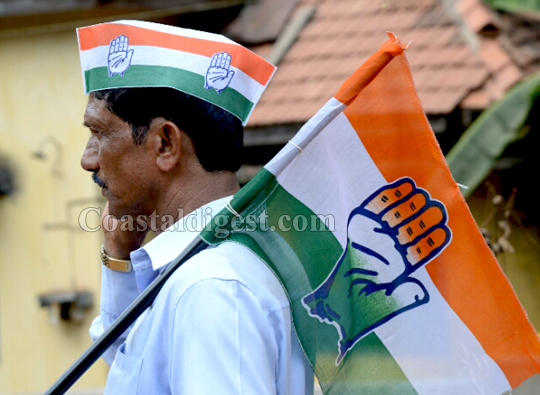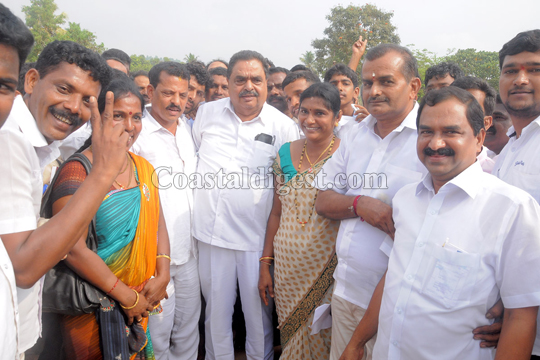Mangaluru, Feb 23: Even though Congress party failed to meet its expectations in recently concluded Zilla and Taluk Panchayat elections in Dakshina Kannada, it managed to wrest two of the five Taluk Panchayats from the Bharatiya Janata Party in the district.
BJP had wrested Mangaluru and Bantwal Taluk Panchayats from Congress in 2011. This time, Congress bettered its performance in both the Taluk Panchayats and regained power. SDPI, CPI(M) and others did not win any seat.
In Mangaluru TP, Congress won 20 seats out of 39, while BJP won remaining 19 seats. In 2011 BJP had won 19 out of 37 seats while Congress had secured 18 seats.
In Bantwal TP Congress won 22 seats out of 34 seats while BJP won remaining 12 seats. In 2011 BJP had won 17 out of 33 seats while Congress had secured remaining 16 seats.
Also Read:
Will do deep introspection of Congress performance in DK, Udupi: UT Khader
Dakshina Kannada Zilla, Taluk panchayat election results at a glance
Counting begins in ZP, TP polls across Karnataka: Click here for results
Udupi: BJP sweeps Zilla Panchayat, all 3 Taluk Panchayats; Cong suffers blow








Comments
SDPI ... No news.. Congress would have come with more seats if SDPI would Not contested.. last year they won few seats... i don't think they have not doing good job.. that's why lost seats preferably they should not be contesting for communal forces to win the election .. HOPE YOU LEARNT LESSON AND AVOID ELECTION SDPI
Shradha,
JNU row in DK? hahahahahahah.
What a connection you made. You may not be knowing overall Karnataka who is leading?
saleem na thigaldakutta
congress paid lots of money to the voters otherwise clean sweep.
historic victory for bjp, congress started downfall.
Siddaramaiah will lose his post soon, at the end ONLY wrist watch will remain for him,
congress da thigaldakatta
Outstanding performance by BJP - Mandate is against Congress.
Bjp has won 13 District Panchayats in Karnataka.I congratulate Bjp Team Karnataka for this spectacular victory. sorry for congress
what a bastion that BJP has just not being able to break. Not a single seat won in #Karnataka TP/ZP elections
JNU row, cant defeat BJP this is the answer for Truth.
BJP is in majority congress failed all over.
Ministers Like Khader will not lose. congrates khader
people know whom they should elect, the result is congress.
Add new comment